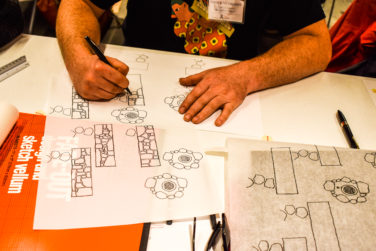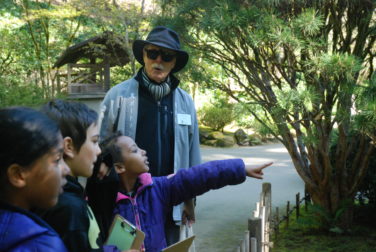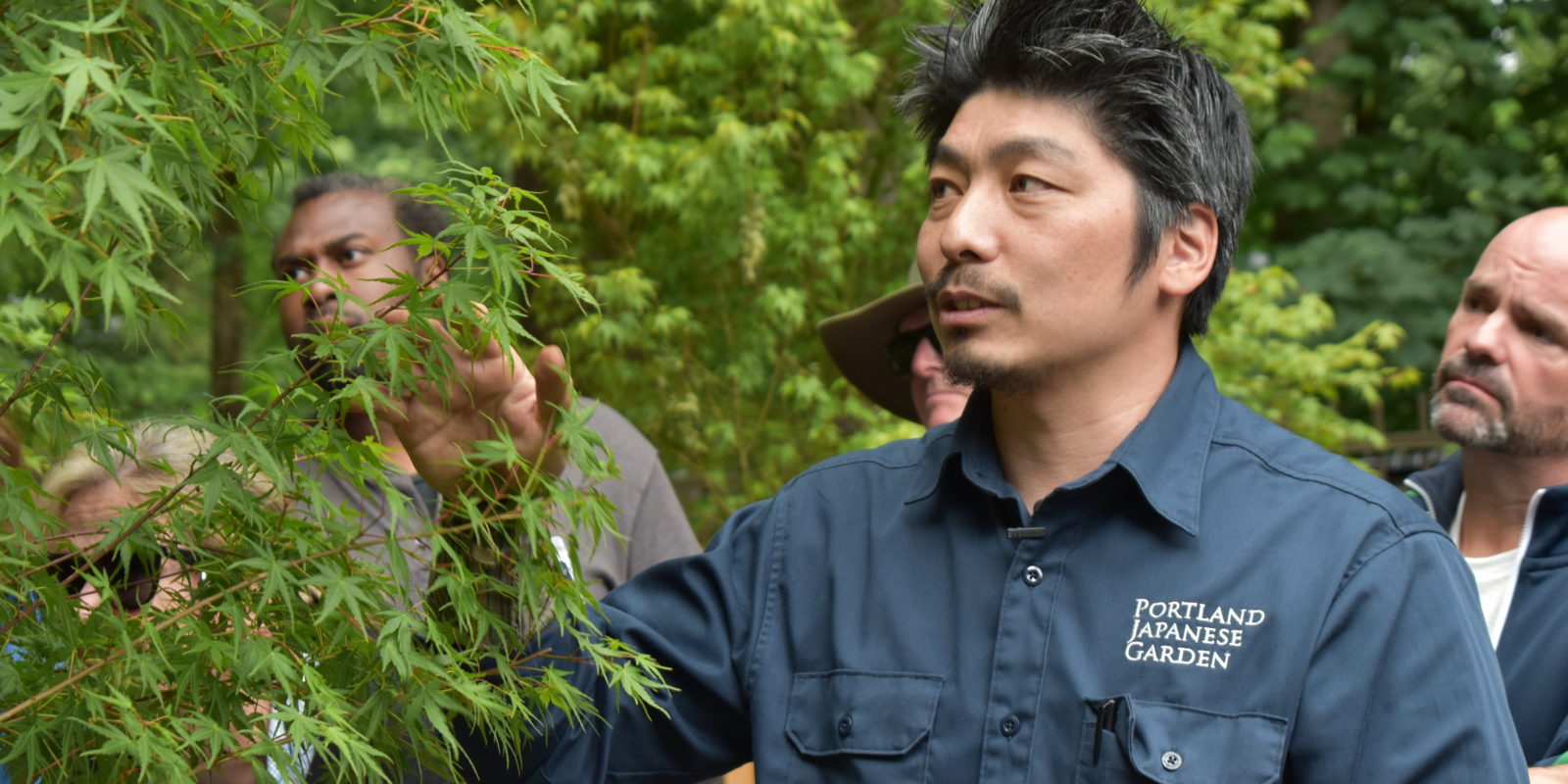“The mere act of making a garden implies a future in which plants will reach fruition and results will be enjoyed. Gardening is inherently hopeful as a series of affirmative, assertive acts—the seeds will germinate, the plants will enjoy adequate rain and sunshine…and we will survive to see all that.” — Kenneth Helphand, Defiant Gardens
GARDEN+ LECTURE SERIES
With the new year comes a fresh crop of inspiring and thought-provoking educational events at Portland Japanese Garden — including captivating speakers in the Training Center’s Garden+ lecture series. Garden+ connects the Japanese garden tradition to topics like nature, health, architecture, design, spirituality, and society. The series kicks off in March with Richard Deverell, Director, Royal Botanic Gardens, Kew. Deverell is a passionate advocate for the power of plants and fungi to help solve the critical challenges facing humanity in the 21st century. Since joining Kew in 2012, he has led a revitalization of the 260-year-old organization’s strategy, engaging the public in contemporary science and conservation issues. April features author, architect, researcher and University of California-Berkeley Professor Emeritus Marc Treib on his new book featuring the ideas and work of pioneering Japanese modernist architect Sutemi Horiguchi.
Next year’s roster concludes with a panel conversation connected to the Garden’s November exhibition of photos by Ansel Adams, Dorothea Lange, and Toyo Miyatake of gardens from the Manzanar internment camp, focusing on the significance of gardens and art as wellsprings of hope and peace for people living through the unimaginable. Panelists include Kenneth Helphand, Professor Emeritus of the University of Oregon’s Department of Landscape Architecture and author of the book and research project Defiant Gardens: Making Gardens in Wartime. A new ticket pricing system for Garden+ will offer youth discounts and also allow non-Members to attend lecture events without additional paying Garden admission.
HANDS-ON TRAINING

Landscape practitioners will have two opportunities to immerse themselves in Japanese garden arts with the Center’s signature program, the Waza to Kokoro: Hands and Heart professional-level seminar. Level 1 (formerly beginner), will take place in both June and September, led by Garden staff and visiting Japanese garden craftsmen. Design professionals will have a chance to engage with the Japanese tradition of designing with nature with the Center’s three-day Design Intensive in April with support from visiting instructor Marc Treib.
For amateur garden enthusiasts seeking hands-on activity, the Garden’s much-loved and familiar Garden Workshops series will feature opportunities for learning about pruning and care of Japanese maples and pine. A new educational opportunity – “Translating Tradition” – offers a short talk and an in-depth tour of the technical and aesthetic aspects of the Garden’s new, ecologically-sensitive spaces, led by Garden staff.
RESOURCES FOR KIDS

Haiku Alive, the Center’s outreach program for Title I schools, is entering its ninth school year as a partnership with Parkrose School District. With students speaking a total of 68 different languages, Parkrose is the second most diverse school district in Oregon. Park Academy, which serves children challenged by dyslexia, also participates in the program. Schools, organizations, or homeschooling families who would like to bring Haiku Alive to the children in their care can now download the program’s curriculum and instructions along with a book of photos and poems by participating students free of charge.
Find these resources at: japanesegarden.org/haiku-alive
The only such program of its kind outside of Japan, the Training Center teaches traditional skills and techniques for creating and fostering Japanese gardens while acquainting learners of all levels with the garden’s cultural heart and soul. Program details, dates, and ticket purchase available at: japanesegarden.org/thecenter
